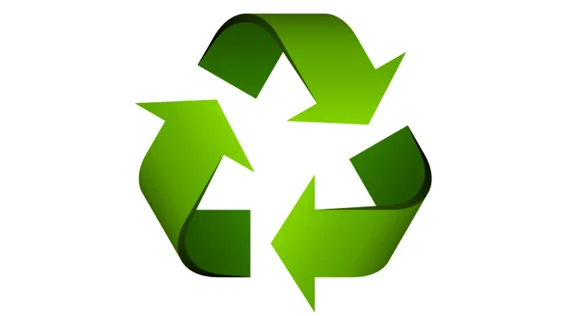
SEATTLE (Waste Advantage): Positive change happens from the bottom up when individuals are empowered to make good decisions. In 2013, Americans recycled 34.3 percent of all solid waste, more than triple the rate in 1980 (9.6 percent) and more than double that of 1990 (16.0 percent). Though that rate has flattened in recent years and lags behind some other rich countries, it still constitutes a significant behavioral change in American society, and it is the result of giving individuals a choice. Those seeking other types of societal change, including a change in our monetary system, can learn from this pattern.
Some of this change has happened due to government intervention, and some of those interventions, for instance requiring manufacturers to use certain recycled materials, could be considered heavy-handed. But another government action has been geared more toward increasing the scope of individual choice, such as that concerning building the infrastructure required for recycling to take place, rather than reducing it. And Antigua Report Deputy Editor Karen Munoz recently showed that government action isn’t necessary to foster recycling. A smartphone app being launched in Chile matches poorer individuals who until now informally collected and recycled garbage with individuals and firms who need waste to be collected.
Policy and innovation that focuses on enhancing individual choice also slowly change views and opinions. The process of choosing to recycle gives people the opportunity to think more about their overall impact on the environment, potentially changing other decisions such as what products to use.
Environmentalists have had less success seeking top-down and coercive regulation, such as curtailing carbon emissions to the degree they advocate. Here they run into the problem of lack of political will. Even if 40 percent of Americans strongly support a carbon tax, it isn’t enough to enact the tax. But technology and policy allowing those 40 percent or more to individually choose to lessen their environmental impact results in a big change.
Those who support the United States’ return to a gold standard face a similar problem. Not enough people understand or support the issue to generate the political will for such a sweeping change, at least at the present time. But the opportunity for positive steps remains. The state-level movement to accept gold as legal tender is exactly the type of choice-enhancing legislation that could lead to slow and steady change. Advocates of change more generally also need to be fighting tooth and nail to treat cryptocurrencies as money rather than assets for tax purposes. These types of initiatives broaden individual choice and open the door to positive change that, while incremental, can add up greatly over time.
Courtesy: https://wasteadvantagemag.com
| Copper Scrap View All | |
| Alternator | 0.31 (0) |
| #1 Copper Bare Bright | 3.65 (-0.04) |
| Aluminum Scrap View All | |
| 356 Aluminum Wheels (Clean) | 0.71 (0) |
| 6061 Extrusions | 0.62 (0) |
| Steel Scrap View All | |
| #1 Bundle | 475.00 (0) |
| #1 Busheling | 495.00 (0) |
| Electronics Scrap View All | |